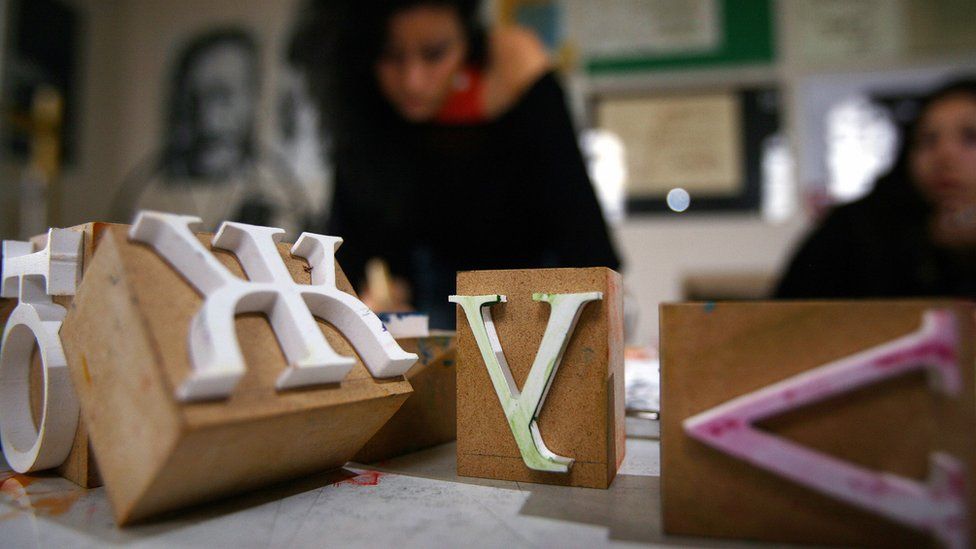Bulgarians tweeting in Cyrillic confused for Russian bots
- Published

Cyrillic is an ancient script dating back more than 1,000 years with the earliest form of the alphabet emerging in Bulgaria in the 9th Century.
But some Bulgarians have found their Twitter accounts suspended and tweets hidden because they are thought to be the work of Russian bots, as Russian also uses the Cyrillic alphabet.
Bulgarian blogger Ilia Temelkov tweeted, in Cyrillic: "Hey Twitter, the Cyrillic alphabet is used by 12 countries in addition to Russia. Can you get serious? Can you, Twitter?"
Temelkov points out he is not a bot and asked Twitter not to shadow ban him (meaning to hide his tweets from public view).
Allow Twitter content?
This article contains content provided by Twitter. We ask for your permission before anything is loaded, as they may be using cookies and other technologies. You may want to read Twitter’s cookie policy, external and privacy policy, external before accepting. To view this content choose ‘accept and continue’.
Similarly, @sassyqueso said: "To think that the Bulgarian and the Russian language are the same," alongside a hashtag which translates as "How to be dumb."
Allow Twitter content?
This article contains content provided by Twitter. We ask for your permission before anything is loaded, as they may be using cookies and other technologies. You may want to read Twitter’s cookie policy, external and privacy policy, external before accepting. To view this content choose ‘accept and continue’.
Vlad Savov, a journalist who covered the confusion for American technology news site The Verge also found people who had been mistaken for a bot.
Allow Twitter content?
This article contains content provided by Twitter. We ask for your permission before anything is loaded, as they may be using cookies and other technologies. You may want to read Twitter’s cookie policy, external and privacy policy, external before accepting. To view this content choose ‘accept and continue’.
Why could this be happening?
Speaking at a United States Senate Committee inquiry into extremist content and Russian disinformation online, Twitter's acting general counsel Sean Edgett shed some light on why this might be happening.
He said in October 2017 that Twitter's tools "do not attempt to differentiate between 'good' and 'bad' automation," when looking for Russian-linked accounts.
"They rely on objective, measurable signals, such as the timing of tweets and engagements to classify a given action as automated."
What can qualify as a Russian-linked Twitter account?
- Created in Russia
- Registered with a Russian phone carrier or email address
- User's display name contains Cyrillic characters
- Tweets are frequently in the Russian language
- Logged in to Twitter via a Russian IP address even once
"We considered an account to be Russian-linked if it had even one of the relevant criteria," said Mr Edgett.
So having a display name containing Cyrillic characters or tweeting in Russian could lead Twitter's algorithms to think the account was possibly automated.
However, the BBC has not seen any such problems from Ukraine or Belarus, two other countries which use Cyrillic.
Twitter has said it is "looking into this issue and will take any needed steps to resolve it, while continuing to take actions to enforce our terms of service and combat malicious networks of spam and automation".
Twitter was in the news back in February for attempting to clamp down on automated social media accounts giving prominence to certain tweets.
Users found themselves locked out of their accounts until they verified with their phone number that they were real.
You may also be interested in:
- Published11 May 2018
- Published20 February 2018
- Published14 November 2017
- Published10 July 2023
- Published28 November 2022